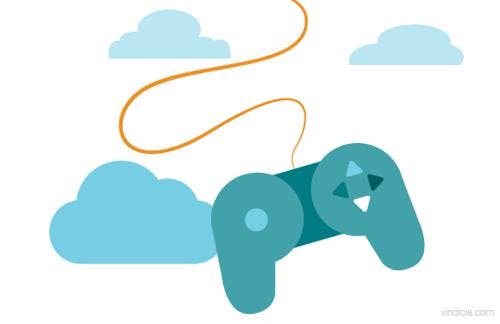Blog
July 9, 2019 | Authored by: Vindicia Team
Trends in gaming monetization
The video game industry is ripe for subscription-fueled growth. Games that are monetized through in-game purchases and single-disc sales (a surprisingly large business but rapidly becoming a thing of the past) are both poised to be replaced by gaming platforms that offer a large selection of games for a relatively low, recurring fee. Gamers may have their favorite titles, but they also crave variety which they can get from the gaming platforms that offer tens or even hundreds of games.
Following this trend, and as massive names such as Google and Apple enter the mix alongside industry stalwarts Microsoft, Nintendo, and Sony, gaming monetization models have lurched towards subscription – a trend likely to further extend as cloud gaming platforms begin to enter the mix.
Let's take an updated look at the subscription landscape for video games.
Gaming industry giants adopt subscription models
Microsoft, Nintendo, and Sony— the triumvirate of major console-makers — have already made subscriptions a big focus. The companies behind the Xbox, Switch, and Playstation, respectively, have ruled for decades and aren't waiting around to test the subscription waters; they're jumping right in. Xbox and Playstation have cloud-based platforms up and running. Gamers pay a monthly rate for access to hundreds of current titles and backward-compatible fan favorites. The PlayStation Now shop even allows users to rent titles and stream games without waiting to download entire files. Meanwhile, Nintendo Switch Online (NSO) gained nearly 10 million subscribers in eight months since launching in fall 2018. The service costs just $4 per month, $20 annually, and lets gamers save progress through the cloud or play beloved Nintendo Entertainment System (NES) games.

Technology giants also enter the gaming business along the subscription route
The subscription surge has hardly been contained to the traditional titans of gaming.
- Apple announced Apple Arcade, to debut in late 2019, a subscription service that will make over 100 titles available to iOS users on iPhones, iPads, Macs, and AppleTV. The company explained the launch in part by saying paid games in its app store, despite being critically acclaimed, struggle to compete with free mobile games. The carte blanche access to its new offering will also include games produced through high-profile partnerships with noted developers.
- Google has also announced a cloud gaming platform, called Stadia. It has advertised the service as a revolution in the future of video games, with the hope to supplant console use by allowing gamers to stream titles in high-definition across their personal devices within seconds. Stadia is set to launch in November 2019 with at least 30 games, allowing users to play through a Chromecast, on a Pixel, or on through their web browser.
- Tencent, the Chinese internet and tech company giant with a global presence, has also become interested in cloud gaming. CNBC reported the company was testing a service with mainland gamers that streamed titles across devices. CNBC noted this move has allowed Tencent to shift with the trends in gaming, namely cloud gaming and in-game or in-app purchases. Tencent is also upping the ante by joining with Riot Games to develop a mobile version of the worldwide hit League of Legends.
- EA is an example of subscription business models working for companies other than console and hardware firms. EA is a dominant game developer with mega-popular titles like FIFA, Apex Legends, Battlefield, Madden, and Star Wars Battlefront. Its EA Access service — once exclusive to Xbox, but now available on PlayStation — is a subscription package that, for $5 a month or $30 annually, lets gamers play leading EA titles as much as they want, as well as try early releases for upcoming games.
- And what about Amazon? A subscription-based streaming platform from the online behemoth is reportedly in the works, according to The Information. Amazon, which already owns the live stream site Twitch, is yet another name that's been thrown into the streaming conversation, except it has a massive advantage: existing cloud infrastructure. Amazon also took a page from the subscription handbook to market its Prime service by teaming with Nintendo to offer a freemium: 12 months of NSO access for subscribing to Amazon or Twitch Prime.
- An interesting subscription play is NVIDIA's GeForce NOW. The company more known for making graphics processing units also have a console (called the NVIDIA Shield) and a PC and Mac gaming service. GeForce Now allows users to stream the latest games with higher quality, better performance, and more faithful rendering thanks to the company's technology.
The intense activity in the video game industry — which is worth $135 billion, according to CNBC in its report on Tencent — has even provoked Microsoft and Sony to join together. The longtime rivals recently announced their intentions to work together on cloud innovation. Such was the surprise of the development that Bloomberg reported Sony's PlayStation team didn't even know about the agreement to work cooperatively on streaming technology and move some of PlayStation's servers to Microsoft. The move has largely been interpreted as one to contend with the increasing number and pull of competitors entering the video game space — especially Google and Apple.
Effectively monetizing gaming with subscription management solutions
As more and more gaming platforms adopt the subscription business model, they will need to re-assess their monetization, billing, and subscription management infrastructure.
We are The Subscription People, and we can help these businesses with the solutions and expertise they need to monetize their gaming assets most effectively.
Contact us today for information about our products and services.
About Author

Vindicia Team
We value our subject matter experts and the insights each of them brings to the table. We want to encourage more thought leaders to come together and share their industry knowledge through our blog. Think you have something interesting to contribute as a guest blogger? Contact us at info@vindicia.com